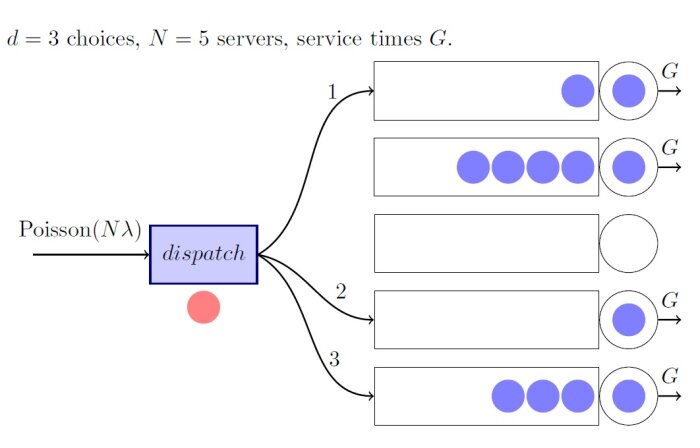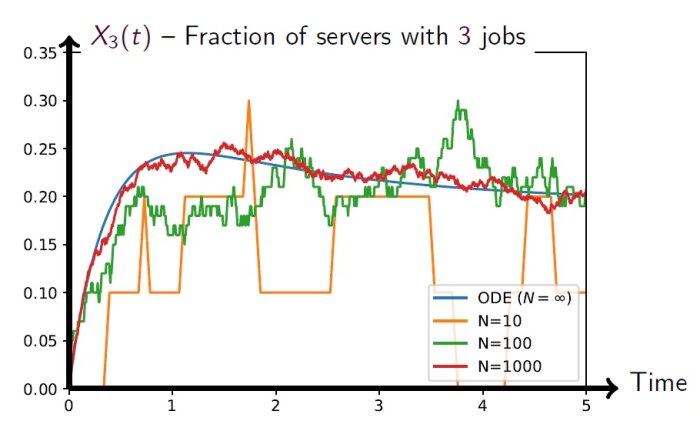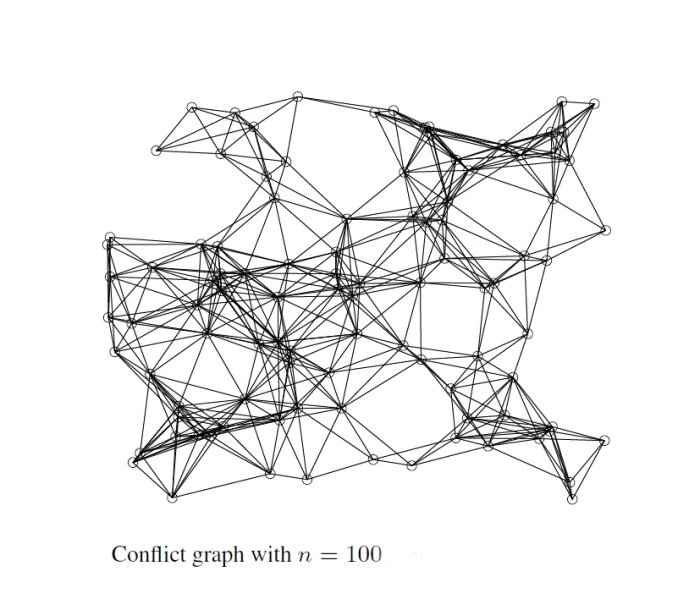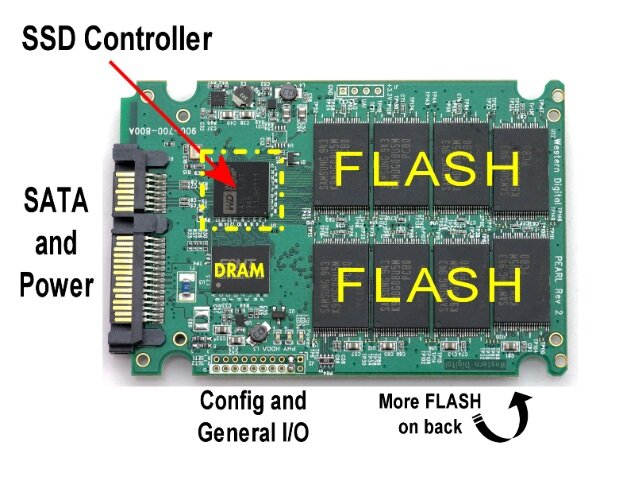The main objective of this research line exist in the development of mathematical models to assess the performance of large and complex systems, where the main focus lies on the analysis of communication and computer systems.
The current research topics include, but are not restricted to:
- Mean field theory: these methods are used to assess the performance of large-scale computing systems that can no longer be analyzed using traditional queueing theory. Mean field theory studies the behavior of large and complex stochastic models using fluid dynamics. The evolution of a mean field model is typically captured by the solution of a set of ordinary, partial or delayed differential equations. In many cases one can show that the mean field model captures the system behavior as the system size tends to infinity.
- Garbage collection and wear levelling algorithms for flash-based solid state drives (SSDs): these algorithms heavily influence the performance and life-span of an SSD as write and erase operations on SSDs are much slower than reads and each block can only be erased a limited number of times before it becomes unstable. These algorithms are implemented in the FTL layer of the SSD controller.
- Load balancing and sharing algorithms: these algorithms are used in large distributed systems to balance the workload among the different processing nodes. The main performance measures include the mean response time and the system stability. Algorithms under consideration include randomized algorithms such as join-the-shortest-queue or join-the-least-loaded-queue of a set of randomly selected servers.
- Random access algorithms: these algorithms are designed such that bandwidth can be shared in a fair manner among a set of network users, examples include tree algorithms, 802.11-type algorithms, CSMA networks, etc. The main focus in this line of work has been on determining the throughput, delay characteristics and fairness. Recent work has focused on hard-core models for CSMA networks characterized by a conflict graph.
- Caching systems: Caches are omnipresent in current day computer systems and are used to provide faster access to a limited set of frequently requested items, such as webpages, YouTube videos, etc.
- Queueing theory: this topic focusses on the design of fast numerical algorithms to derive various performance measures of queueing systems such as the queue length and response time distributions, blocking probabilities, etc.
Various other topics have also received considerable attention in the past. These include: local area network protocols such as EPON and DOCSIS, optical networks, where the main focus was on the analysis of fiber delay lines (FDLs), video playout buffers and CPU scheduling algorithms.
-
 Load Balancing Algorithms
Load Balancing Algorithms -
 Mean Field Theorie
Mean Field Theorie -
 Random Access Algorithms
Random Access Algorithms -
 Wear leveling algorithms
Wear leveling algorithms
Involved faculty
Benny Van Houdt
